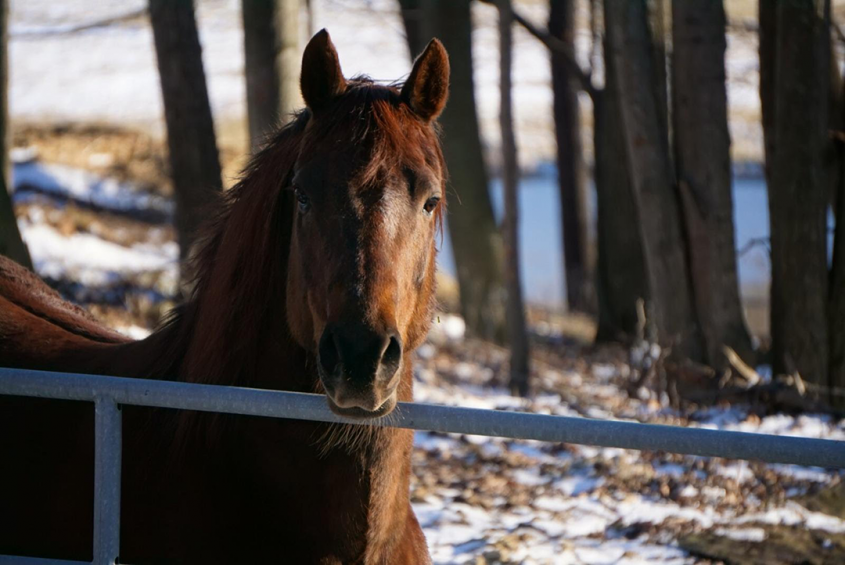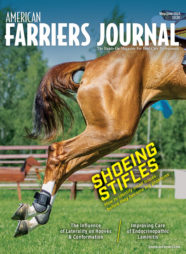The Equine and Nemo Farm Animal Hospital (ENFAH) at Cornell University found great success in treating a 10-year-old Morgan gelding for laminitis and equine metabolic syndrome (EMS).
The gelding became lethargic and would not leave his stall July 2016, and his owner Lynn Dibble thought he had a resurgence of a previous case of Lyme’s disease. However, after antibiotics failed to improve his condition, Dibble took him to ENFAH.
The horse’s symptoms included obesity, fat in the neck and backside, unwillingness to move, choppy stride, and an increased pulse.
At the hospital, the medical team sent a blood test to Animal HealthDiagnostic Laboratory’s endocrine lab to confirm an EMS diagnosis. The blood test also revealed that the horse had an insulin-resistance that often causes laminitis to develop, and a radiograph of his hooves confirmed laminitis.
The main concern of the medical team was to alleviate the horse’s pain and develop a treatment plan to manage the laminitis, which can lead to hoof deformities, hoof abscesses, bone infections and other degenerative issues if untreated.
Steve Kraus, head of farrier services at the hospital, and the orthopedic team decided trimmed the horse’s toe and heel and applied heart-bar shoes to correct the abnormal angles and allow the new hoof to grow. Dibble noticed an immediate difference in her horse’s demeanor and says he was more comfortable getting around.
The horse also went on a strict diet regimen to lose weight in order to manage the EMS and laminitis. He went on a diet of plain grass hay equal to 1.5% of his weight along with vitamin and mineral supplements and was exercised three times a day. With this diet, the horse successfully lost 200 pounds.
Follow up visits showed that the horse’s health had significantly improved, including the angle of rotation of the coffin bone in all his hooves.
Dibble says that her horse is back to his regular self thanks to the team at ENFAH.
“This was a case where teamwork between the clinicians, radiologists and farrier, along with the endocrinology laboratory at Cornell University, made an accurate diagnosis and formulated a long-term treatment and management strategy for very dedicated owners who made it all work,” says Gillian Perkins, medical director of ENFAH.








Post a comment
Report Abusive Comment